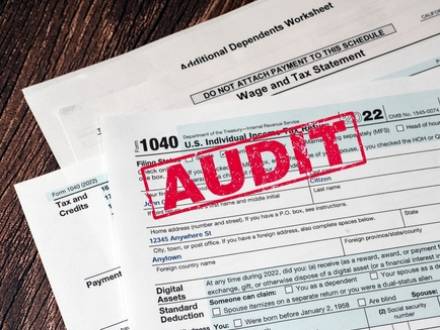Recent Blog Posts
IRS Opens New Employee Retention Credit Supplemental Claim Process
 Recently, the IRS has focused attention on the Employee Retention Credit (ERC), which was created to provide relief to businesses that were affected by the COVID-19 pandemic. This credit was available for certain qualifying businesses in 2020 and 2021, but concerns have been raised about incorrect ERC claims made by businesses during those periods or in the subsequent years. The IRS is now investigating these claims, and taxpayers who made incorrect claims may be subject to tax audits and penalties. As part of these ongoing efforts, the IRS recently announced a supplemental claim process for third-party payers.
Recently, the IRS has focused attention on the Employee Retention Credit (ERC), which was created to provide relief to businesses that were affected by the COVID-19 pandemic. This credit was available for certain qualifying businesses in 2020 and 2021, but concerns have been raised about incorrect ERC claims made by businesses during those periods or in the subsequent years. The IRS is now investigating these claims, and taxpayers who made incorrect claims may be subject to tax audits and penalties. As part of these ongoing efforts, the IRS recently announced a supplemental claim process for third-party payers.
Because of the significant penalties that may apply for taxpayers who incorrectly claimed the Employee Retention Credit, it is important to work with an attorney to address this issue. A lawyer with a strong understanding of tax law can help determine the best course of action to help mitigate penalties and resolve any outstanding tax issues that may exist.
How Can Business Partners Report Property Distributed by a Partnership to the IRS?
 Business partnerships often distribute property or cash to partners as part of their share of the partnership’s income. Understanding how to properly report these distributions to the IRS is essential for avoiding tax issues down the line. Starting with the 2024 tax year, the IRS has introduced Form 7217, a new requirement for reporting property distributions to business partners. This form helps clarify the reporting obligations for the business partners.
Business partnerships often distribute property or cash to partners as part of their share of the partnership’s income. Understanding how to properly report these distributions to the IRS is essential for avoiding tax issues down the line. Starting with the 2024 tax year, the IRS has introduced Form 7217, a new requirement for reporting property distributions to business partners. This form helps clarify the reporting obligations for the business partners.
An attorney with experience in tax law and business tax issues can help business partners navigate the complexities of partnership property distributions and ensure that all reporting requirements are properly handled.
What Is Form 7217?
Form 7217 is a new IRS form required for partners who receive distributions of property from partnerships, ensuring that they properly report any income or gain from these distributions. It will be required in the 2024 tax year and future years. The form is used to report cash and non-cash property distributions, such as real estate, equipment, or inventory. This form must be filed by the partner along with their annual tax return. It will detail the type of property distributed and the aggregate basis and allocation basis of the property.
When Is a Company Exempt From Filing Beneficial Ownership Information Reports?
 The U.S. government requires most businesses to disclose their ownership structure under new rules set forth by the Financial Crimes Enforcement Network (FinCEN). This disclosure is part of the Beneficial Ownership Information Reporting (BOIR) requirement, which is meant to increase transparency and prevent criminal activity such as money laundering. However, certain companies are exempt from this requirement.
The U.S. government requires most businesses to disclose their ownership structure under new rules set forth by the Financial Crimes Enforcement Network (FinCEN). This disclosure is part of the Beneficial Ownership Information Reporting (BOIR) requirement, which is meant to increase transparency and prevent criminal activity such as money laundering. However, certain companies are exempt from this requirement.
Understanding whether a company is required to file a BOIR can help business owners, partners, shareholders, or other parties avoid penalties or other legal concerns. An experienced attorney can provide guidance and help ensure that small businesses or other companies maintain compliance with federal regulations.
What Are the Beneficial Ownership Information Reporting Requirements?
The BOIR requirement, which was put in place by the Corporate Transparency Act (CTA), mandates that most corporations, limited liability companies (LLCs), and other similar entities provide FinCEN with information about their "beneficial owners." A beneficial owner is any individual who directly or indirectly owns or controls 25 percent or more of a company’s ownership interests, as well as anyone else who exercises substantial control over the company’s operations. These rules are meant to deter illegal activities by making it harder for people to hide their identities behind complex corporate structures.
Can Streamlined Filing Procedures Be Used During a Tax Audit Related to Offshore Assets? | CA
 Taxpayers who own assets in other countries must meet certain requirements when reporting these assets to the IRS and paying any required taxes. The process of foreign investment reporting can be complex, and taxpayers who own multiple types of complex assets may not realize that they have failed to comply with their requirements.
Taxpayers who own assets in other countries must meet certain requirements when reporting these assets to the IRS and paying any required taxes. The process of foreign investment reporting can be complex, and taxpayers who own multiple types of complex assets may not realize that they have failed to comply with their requirements.
To help taxpayers come into compliance, the IRS offers streamlined filing procedures (commonly known as "streamlined compliance") for those who have unintentionally failed to report offshore assets. However, taxpayers may be uncertain about whether these streamlined procedures can be used if the IRS has already initiated a tax audit.
An experienced tax attorney can help taxpayers determine the best course of action when dealing with offshore tax issues and IRS audits. By receiving legal help and representation, taxpayers can take steps to meet their requirements while reducing their potential tax penalties.
What Is the Difference Between Injured Spouse Relief and Innocent Spouse Relief? | CA
 When married couples file taxes jointly, they share responsibility for the tax return and any taxes owed. However, there are situations where one spouse should not be held responsible for their partner's tax debts or actions that violated tax laws. The IRS provides two specific forms of relief to address these situations: Injured Spouse Relief and Innocent Spouse Relief. Each option has different requirements and provides different protections for spouses. An attorney with experience in tax issues related to divorce and other tax law concerns that may affect married couples can help people explore the best legal options for resolving IRS issues.
When married couples file taxes jointly, they share responsibility for the tax return and any taxes owed. However, there are situations where one spouse should not be held responsible for their partner's tax debts or actions that violated tax laws. The IRS provides two specific forms of relief to address these situations: Injured Spouse Relief and Innocent Spouse Relief. Each option has different requirements and provides different protections for spouses. An attorney with experience in tax issues related to divorce and other tax law concerns that may affect married couples can help people explore the best legal options for resolving IRS issues.
What Is Injured Spouse Relief?
When a couple files a joint tax return, the IRS may seize their refund to cover one spouse’s separate debts. These debts could include:
How to Respond to an Employee Retention Credit Disallowance Letter From the IRS
 To help businesses address losses experienced due to the COVID-19 pandemic, the Employee Retention Credit (ERC) was available in 2020 and 2021. However, some businesses may have made incorrect ERC claims. In some cases, this has been due to aggressive marketing by tax preparation services that have claimed that the ERC is a grant or government stimulus. The IRS is taking steps to address the large number of claims that have been made, and businesses that have made incorrect claims may be required to repay the credits they have received.
To help businesses address losses experienced due to the COVID-19 pandemic, the Employee Retention Credit (ERC) was available in 2020 and 2021. However, some businesses may have made incorrect ERC claims. In some cases, this has been due to aggressive marketing by tax preparation services that have claimed that the ERC is a grant or government stimulus. The IRS is taking steps to address the large number of claims that have been made, and businesses that have made incorrect claims may be required to repay the credits they have received.
Recently, the IRS announced that it is sending out "disallowance letters" to businesses that have filed ERC claims that are at a high risk of being incorrect. It will also be conducting tax audits of some businesses that have received ERC claims. Employers who have received these disallowance letters or who are concerned about potential penalties related to ERC claims may wish to consult with an attorney to determine their options for addressing these issues.
Are Tax Deductions Available for Cannabis Businesses?
 Owners of cannabis businesses face some unique challenges as they meet specific legal requirements related to cultivating, distributing, or selling marijuana. Business owners need to understand their tax obligations and whether certain types of deductions may be available to them. Navigating the complex tax landscape can be difficult, but with the help of an experienced tax attorney, business owners can take steps to address small business taxes and other types of taxes that may apply.
Owners of cannabis businesses face some unique challenges as they meet specific legal requirements related to cultivating, distributing, or selling marijuana. Business owners need to understand their tax obligations and whether certain types of deductions may be available to them. Navigating the complex tax landscape can be difficult, but with the help of an experienced tax attorney, business owners can take steps to address small business taxes and other types of taxes that may apply.
Federal Tax Limitations for Cannabis Businesses
While the state of California has legalized marijuana for medical and recreational use, cannabis is still classified as a Schedule I controlled substance by the federal government. This has limited the ability of cannabis business owners to claim deductions that would typically be available to businesses, while still requiring them to pay all applicable income and employment taxes. NOTE: Although in May 2024, the U.S. Department of Justice published a notice of proposed rulemaking to reschedule marijuana (cannabis) from a Schedule I controlled substance to Schedule III, this would only be a first step to easing federal restrictions on cannabis, and it may be a number of months or longer before there is any change to the current Schedule I classification.
Do Digital Asset Brokers Need to Report Cryptocurrency Transactions to the IRS?
 Cryptocurrency is an increasingly popular form of currency that is used to conduct transactions online. Virtual currencies can be purchased, sold, and traded, and they may be used to pay for goods and services. However, these transactions are subject to taxes, and to ensure that they are being tracked and taxed correctly, the IRS requires reporting by the parties involved.
Cryptocurrency is an increasingly popular form of currency that is used to conduct transactions online. Virtual currencies can be purchased, sold, and traded, and they may be used to pay for goods and services. However, these transactions are subject to taxes, and to ensure that they are being tracked and taxed correctly, the IRS requires reporting by the parties involved.
One issue that has arisen as the IRS addresses cryptocurrency involves the role of digital asset brokers, who may act as middlemen in transactions. New regulations have provided clarity on the requirements that apply to these brokers. For those who are involved in digital asset transactions, an attorney with knowledge and experience in the applicable tax laws can provide guidance on the requirements that may apply and the steps taxpayers can take to avoid penalties.
Will the Estate Tax Exemption Change in 2025?
 For people and families with substantial wealth, estate taxes may be a significant concern. The requirement to pay taxes on the assets a person owned can significantly reduce the amount that may be passed on to beneficiaries. Fortunately, federal law provides an exemption that ensures that a certain amount of assets will not be subject to the estate tax.
For people and families with substantial wealth, estate taxes may be a significant concern. The requirement to pay taxes on the assets a person owned can significantly reduce the amount that may be passed on to beneficiaries. Fortunately, federal law provides an exemption that ensures that a certain amount of assets will not be subject to the estate tax.
The Tax Cuts and Jobs Act (TCJA) of 2017 increased this exemption, but this change was not permanent, and it is likely to be reduced in the future. An experienced attorney can provide guidance on the best ways to address issues related to estate taxes, including taking steps to reduce the taxable value of an estate to preserve assets for future generations.
Changes to the Estate Tax Exemption
The TCJA substantially increased the estate tax exemption, effectively doubling it from its previous level. Here is a brief overview of the changes:
Supreme Court Ruling Addresses Taxes on Offshore Earnings
 U.S. taxpayers who own foreign assets or earn income in other countries may need to address a variety of complex tax issues. The reporting requirements for foreign accounts and investments are not always easy to understand, and changes to tax laws may lead to new issues that can affect these taxpayers. A recent decision by the U.S. Supreme Court may affect taxpayers with offshore earnings. An experienced attorney can help determine how to address tax issues related to businesses in foreign countries while working to help taxpayers minimize their tax burdens.
U.S. taxpayers who own foreign assets or earn income in other countries may need to address a variety of complex tax issues. The reporting requirements for foreign accounts and investments are not always easy to understand, and changes to tax laws may lead to new issues that can affect these taxpayers. A recent decision by the U.S. Supreme Court may affect taxpayers with offshore earnings. An experienced attorney can help determine how to address tax issues related to businesses in foreign countries while working to help taxpayers minimize their tax burdens.
Moore v. United States and Taxes on Foreign Assets
The case that the Supreme Court reviewed involved a couple who invested in a business in India. The Tax Cuts and Jobs Act of 2017 implemented a one-time tax on certain types of offshore earnings. These earnings had previously been tax-exempt until money was brought back to the United States. The new law created a Section 965 transition tax that requires U.S. shareholders of specified foreign corporations to treat offshore earnings as if they had been repatriated to the United States. Under this law, the couple was required to pay $15,000 in taxes.









